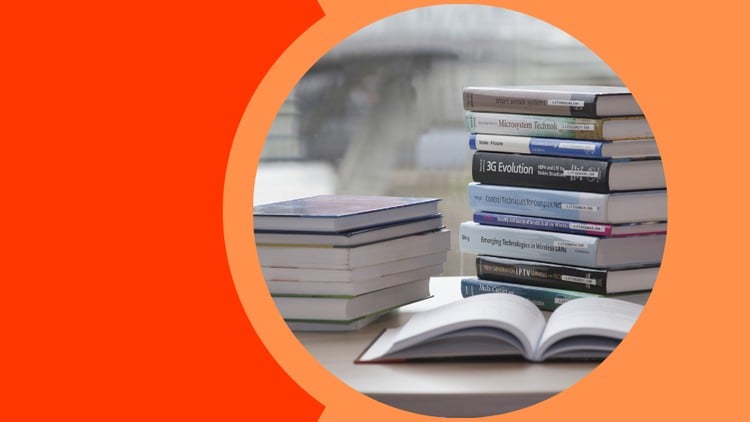
Create new content and benefit the learners
⏱️ Length: 35 total minutes
⭐ 4.63/5 rating
👥 3,536 students
🔄 December 2023 update
Add-On Information:
Note➛ Make sure your 𝐔𝐝𝐞𝐦𝐲 cart has only this course you're going to enroll it now, Remove all other courses from the 𝐔𝐝𝐞𝐦𝐲 cart before Enrolling!
-
Course Overview
- This succinct yet impactful course introduces participants to the foundational nexus between creating effective learning materials and strategically designing educational curricula. It delves into the pedagogical principles that underpin successful knowledge transfer, moving beyond mere content creation to cultivate a deep understanding of how thoughtfully engineered resources can optimize learner engagement and achievement within any educational framework. You’ll gain a holistic perspective on the lifecycle of learning materials, from conceptualization rooted in specific learning objectives to their strategic integration within a broader curriculum.
- Explore the intricate relationship between instructional design theories and the practical realities of material production. This module provides a crucial lens through which to analyze and innovate, equipping you with the initial insights to craft compelling educational content that isn’t just informative, but truly transformative. It emphasizes a learner-centric approach, encouraging you to consider diverse learning styles, accessibility needs, and the evolving landscape of educational technology, even within a concise introductory format.
- Discover how to conceptualize educational materials as integral components of a cohesive curriculum, ensuring vertical alignment with learning outcomes and horizontal integration with other course elements. The course offers a strategic overview of identifying instructional gaps, envisioning solutions through material design, and understanding the iterative nature of development that refines resources for maximum educational impact. This foundational understanding is vital for anyone aiming to contribute meaningfully to learning and development initiatives.
-
Requirements / Prerequisites
- A foundational curiosity for learning and education: This course assumes a keen interest in understanding how people learn effectively and how well-designed materials can facilitate that process. No advanced pedagogical degrees or prior experience in curriculum development are necessary, making it accessible for aspiring educators, trainers, content creators, and instructional designers.
- Basic digital literacy and an open mind: While the course is foundational, a comfortable familiarity with navigating digital environments and an eagerness to engage with new concepts related to instructional technology and design thinking will enhance your learning experience. An open and inquisitive mindset towards challenging traditional educational approaches is highly encouraged.
-
Skills Covered / Tools Used
- Strategic Content Structuring: Develop an initial understanding of how to organize information logically and pedagogically to maximize comprehension and retention, moving beyond simply presenting data to crafting coherent learning pathways. This involves grasping the principles of sequencing, chunking, and progressive disclosure for optimal learner experience.
- Learner-Centric Design Principles: Cultivate a foundational mindset geared towards designing materials from the perspective of the learner, considering cognitive load, motivational factors, and diverse accessibility needs to ensure inclusive and effective educational experiences. This includes an introduction to empathy mapping for target audiences.
- Curriculum Alignment & Integration: Learn the initial steps in conceptualizing how individual learning materials fit into a larger curriculum, ensuring they support broader learning objectives and contribute to a cohesive educational journey, rather than existing in isolation. This involves understanding the principles of backward design at an introductory level.
- Foundational Visual & Information Hierarchy Concepts: Gain an introductory appreciation for how visual design and information hierarchy impact readability, engagement, and understanding in educational materials, even without delving into specific software operations. This covers initial ideas on layout, typography, and graphic selection.
- Iterative Design Thinking & Feedback Loop Introduction: Embrace the preliminary concept of materials design as an ongoing process of creation, testing, and refinement based on feedback and evolving learner needs, laying the groundwork for continuous improvement in educational product development.
-
Benefits / Outcomes
- Enhanced Pedagogical Acumen: Gain a deeper, foundational understanding of the “why” behind effective teaching and learning materials, empowering you to critically evaluate and thoughtfully contribute to the development of impactful educational resources from an informed perspective.
- Strategic Design Perspective: Develop an initial strategic outlook on how individual learning objects contribute to overarching educational goals, enabling you to design materials that are not only engaging but also purposefully aligned with curriculum objectives and learner outcomes.
- Foundation for Content Innovation: Equip yourself with the introductory insights needed to conceptualize and advocate for innovative material designs that leverage modern pedagogical approaches and cater to diverse learner needs, fostering a creative problem-solving approach to educational challenges.
- Improved Critical Evaluation Skills: Cultivate the ability to analyze existing educational materials with a discerning eye, identifying areas for improvement and recognizing best practices in instructional design and material production, even in a short timeframe.
- Pathway to Further Specialization: This course serves as an excellent springboard, providing a robust conceptual foundation that will prepare you for more advanced studies or practical applications in instructional design, curriculum development, e-learning content creation, and educational technology.
-
PROS
- Highly Time-Efficient: Delivers foundational knowledge in a concise 35-minute format, perfect for busy professionals or those seeking a rapid introduction to the field.
- Conceptual Clarity: Excellently distills complex topics into easily digestible principles, providing a strong conceptual framework without overwhelming technical details.
- Inspirational and Practical: Aims to ignite creativity and provide actionable, high-level insights that can immediately inform your approach to educational content.
-
CONS
- Limited Hands-On Practice: Due to its brevity, the course primarily focuses on conceptual understanding rather than extensive practical application or tool-specific tutorials.
Learning Tracks: English,Teaching & Academics,Teacher Training
Found It Free? Share It Fast!